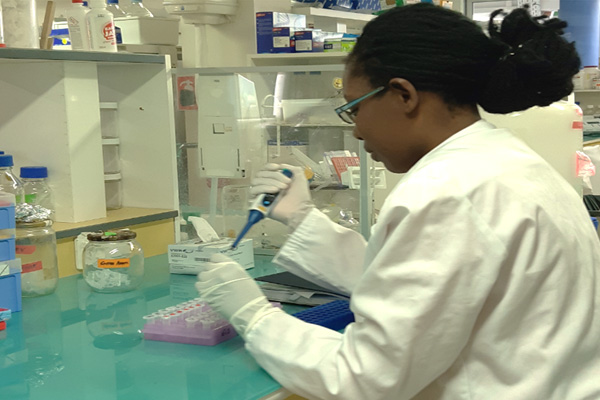Methicillin-resistant Staphylococcus aureus (MRSA) skin infections represent a real problem in the therapeutic management of schoolchildren. In this study, we investigated the epidemiology of methicillin-resistant Staphylococcus aureus (MRSA) colonization in schoolchildren skin lesions in Bouaké, Centre Côte d’Ivoire. S. aureus isolates were examined for drugs susceptibility and mecA, tetK and tetM genes presence. An analytical cross-sectional study of skin lesions in schoolchildren was conducted from November 2018 to May 2019. Skin lesion swabs were analyzed using conventional bacteriological techniques. Isolated S. aureus strains were tested with standard antibiotics using the Kirby-Bauer technique according to CASFM/EUCAST 2019 recommendations. PCR was performed for the detection of mecA, tetK and tetM genes. In total, 199 strains of S. aureus were isolated of which 68 (34.17 %) were MRSA and 169 (85 %) were tetracycline resistant. Of the MRSA strains, 40 (58.83%) were mecA positive, 29 (42.65 %) harbored the tetK gene, 13 (19.12 %) the tetM gene and 6 (8.83 %) all three genes. Ninety-nine (58.57 %) of the tetracycline-resistant strains were tetK positive, 40 (23.67 %) were tetM positive and 23 (13.60 %) had both tetK and tetM genes. The resistance rate of the tetK and tetM genes associated with the mecA gene was 29.29 % and 30 % respectively. In conclusion, schoolchildren community acquired MRSA isolates suggested that the skin of schoolchildren with lesion may represent a significant reservoir of MRSA colonization in the community. This calls for vigilance of clinicians and microbiologists for the emergence of new epidemics in schoolchildren communities.
Keywords: Skin lesions, MRSA, mecA, tetK and tetM genes, schoolchildren
Les infections cutanées à Staphylococcus aureus résistant à la méthicilline (SARM) représentent un réel problème dans la prise en charge thérapeutique des écoliers. Dans cette étude, nous avons étudié l'épidémiologie de la colonisation par S. aureus résistant à la méthicilline (SARM) dans les lésions cutanées des écoliers à Bouaké, Centre Côte d'Ivoire. Des isolats de S. aureus ont été examinés pour la sensibilité aux médicaments et la présence des gènes mecA, tetK et tetM. Une étude transversale analytique des lésions cutanées chez les écoliers a été menée de novembre 2018 à mai 2019. Des écouvillonnages de lésions cutanées ont été analysés à l'aide de techniques bactériologiques conventionnelles. Des souches isolées de S. aureus ont été testées avec des antibiotiques standards en utilisant la technique de Kirby-Bauer selon les recommandations CASFM/EUCAST 2019. La PCR a été réalisée pour la détection des gènes mecA, tetK et tetM. Au total, 199 souches de S. aureus ont été isolées dont 68 (34,17 %) étaient des SARM et 169 (85 %) étaient résistantes à la tétracycline. Parmi les souches de SARM, 40 (58,83 %) étaient mecA positives, 29 (42,65 %) portaient le gène tetK, 13 (19,12 %) le gène tetM et 6 (8,83 %) les trois gènes. Quatre-vingt-dix-neuf (58,57 %) des souches résistantes à la tétracycline étaient tetK positives, 40 (23,67 %) étaient tetM positives et 23 (13,60 %) avaient à la fois les gènes tetK et tetM. Le taux de résistance des gènes tetK et tetM associés au gène mecA était respectivement de 29,29 % et 30 %. En conclusion, les isolats de SARM acquis dans la communauté des écoliers suggèrent que la peau des écoliers présentant une lésion peut représenter un réservoir important de colonisation de SARM dans la communauté. Cela appelle à la vigilance des cliniciens et des microbiologistes face à l'émergence de nouvelles épidémies dans les communautés scolaires.
Mots-clés: Infections cutanées, SARM, genes mecA, tetK and tetM, écoliers.
Received 21st May 2021 Revised 3rd August 2021 Accepted 8th August 2021 Published 20th August 2021

infosim@sim-ivoire.com
+225 43 85 33 32 / 57 11 13 72
08 BP 2300 Abidjan 08
| High Prevalence of tetM as Compared to tetK Amongst Methicillin-Resistant Staphylococcus aureus (MRSA) Isolates from Hospitals in Perak, Malaysia |
| Microarray-based characterisation of a Panton–Valentine leukocidin-positive community-acquired strain of methicillin-resistant Staphylococcus aureus |
| Antibiotic Susceptibility, Virulence Pattern, and Typing of Staphylococcus aureus Strains Isolated From Variety of Infections in India |
| Methicillin-Resistant Staphylococcus aureus (MRSA) in Food- Producing and Companion Animals and Food Products |
Views:
Download:
